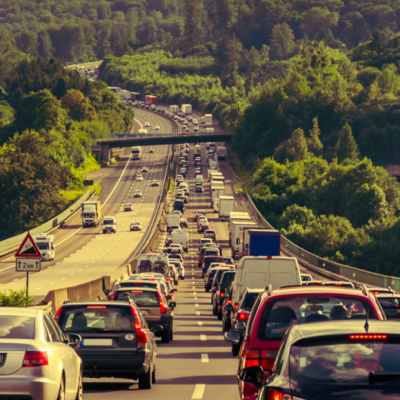A new study by the German Federal Environment Agency (UBA) has revealed that a blanket speed limit on highways would reduce CO2 emissions in Germany more than previously estimated. The introduction of a general speed limit on highways in Germany has been a controversial topic. According to a UBA study, the majority of the general population is “definitely” or “rather” in favor of a speed limit, while the majority of drivers reject it. The Federal Constitutional Court (BVerfG) recently spoke out against a speed limit, stating that the judges did not consider it sufficient that a speed limit was necessary to achieve climate protection goals. However, the UBA has now published a new study showing that a general speed limit on highways has a significantly greater climate protection effect than previously estimated.
The study, conducted by scientists from the University of Stuttgart and the University of Graz, shows that a maximum speed of 120 km/h per year would save about 6.7 million tonnes of CO2 equivalents. This corresponds to 4.2 percent of road transport CO2 emissions. A UBA study from 2020 found that such a speed limit would only reduce road transport emissions by 2.6 million tonnes. The authors attribute the large difference between the results of the two studies to different methodologies and emission factors used. Additionally, the researchers explain that certain driver behaviors have a greater impact on CO2 emissions than previously assumed. A speed limit would make highways less attractive and lead to increased traffic on alternatives.
The use of highways would decrease by 1.1 percent, while the mileage of cars and light commercial vehicles on all other roads would increase, according to the study. A blanket speed limit would also make other modes of transportation more attractive, resulting in a decrease in overall car mileage. “The total reduction in mileage on all types of routes is 1.8 percent and 2.1 percent for car traffic,” the study states. Despite the controversy surrounding the issue, the UBA’s study provides valuable insights into the potential benefits of a blanket speed limit on highways in Germany.










